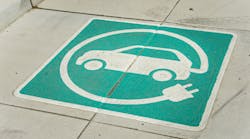The National Electric Highway Coalition recently announced that AES Indiana and AES Ohio have joined them in their common goal of deploying electric vehicle (EV) fast charging infrastructure to support the growing number of EVs.
In 2021, the Edison Electric Institute (EEI) along with an initial group of member companies led efforts to support the clean energy transformation and reduce carbon emissions across the economy. Today, the NEHC consists of more than 60 investor-owned electric companies, one electric cooperative, and the Tennessee Valley Authority.
"Electric vehicles are the future and we look forward to accelerating adoption by working with members of the National Electric Highway Coalition to support a network of convenient fast-charging options for drivers as they travel across Indiana, Ohio, and beyond," said Kristina Lund, AES US Utilities President and CEO. "This partnership will expand our ability to provide customers with opportunities to utilize electric vehicles in their everyday lives."
EEI estimates more than 100,000 EV fast charging ports will be needed to support the nearly 22 million EVs projected on US roads by 2030. This need is why President Biden recently earmarked more than $7.5 billion toward building a nationwide network of EV chargers. An increasing number of drivers recognize the benefits of an EV, but the primary concern is the availability of charging stations during long road trips. The members of the NEHC are addressing this "range anxiety" and demonstrating to customers that EVs are a smart choice for both traveling long distances or locally.
AES Indiana is partnering with government stakeholders to advance the expansion of EV infrastructure and applauds the passage of House Bill 1221. This Bill leverages pilot programs to provide valuable information about the impact to the electric grid and customer usage.
AES Ohio has $5.1 million available for electric vehicle charging rebates, paid on a first-come first-serve basis for qualifying projects. Eligible chargers include Level 2 and DC Fast Chargers. Level 2 Chargers can be installed at workplaces, apartment complexes, or in areas available to the public. DC Fast Chargers must be installed in areas available to the public. EV charger rebates such as this are one of the strategies being employed across the country to encourage EV adoption.
Additionally, AES Indiana and AES Ohio are taking steps to electrify their vehicle fleet, with electric or hybrid vehicles. Transitioning to these cleaner-powered options is part of larger efforts to greener and cleaner energy options plus support transportation electrification.
For more information about IIJA funding for EV charging infrastructure, read the articles in our special EV section:



